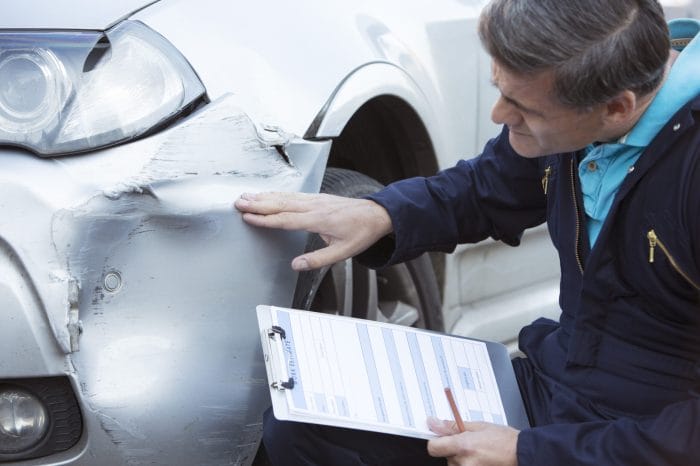When faced with the aftermath of a car accident, dealing with auto insurance adjusters can be a daunting task. These professionals play a crucial role in assessing damages, determining settlements, and guiding you through the claims process. Understanding how to effectively communicate with adjusters, gather necessary documentation, and negotiate fair settlements can make a significant difference in the outcome of your claim.
This comprehensive guide equips you with the knowledge and strategies to navigate the complexities of dealing with auto insurance adjusters, ensuring a smooth and successful resolution.
As you embark on this journey, remember that open communication, thorough preparation, and assertiveness are key. By following the tips and insights provided in this guide, you can confidently advocate for your rights and ensure a fair and satisfactory resolution to your auto insurance claim.
Understanding the Role of Auto Insurance Adjusters
Auto insurance adjusters play a crucial role in the claims process, acting as intermediaries between insurance companies and policyholders. They are responsible for assessing damages, determining liability, and negotiating settlements.
During the claims process, adjusters investigate accidents, gather evidence, and assess the extent of damages. They work closely with policyholders to understand the circumstances of the accident and document the losses incurred. Adjusters also evaluate the damage to vehicles, property, and any injuries sustained.
Assessing Damages
When assessing damages, adjusters consider various factors, including the severity of the accident, the extent of the damage, and the value of the property involved. They may use industry-standard guides and databases to determine the fair market value of damaged vehicles and property.
In cases of bodily injury, adjusters work with medical professionals to evaluate the severity of injuries and estimate the cost of medical treatment and rehabilitation. They also consider factors such as pain and suffering, lost wages, and other non-economic damages.
Determining Settlements
Once the damages have been assessed, adjusters negotiate settlements with policyholders. They present settlement offers based on their evaluation of the claim and the policyholder’s coverage limits. Adjusters may engage in negotiations with policyholders or their representatives to reach a fair and reasonable settlement.
The settlement amount is influenced by various factors, including the adjuster’s assessment of damages, the policyholder’s coverage limits, and any applicable state laws or regulations. Adjusters strive to find a balance between protecting the insurance company’s interests and ensuring that policyholders receive fair compensation for their losses.
Effective Communication Strategies

Establishing open and effective communication with auto insurance adjusters is crucial for a successful claim settlement. Here are some strategies to help you navigate conversations with adjusters and address concerns assertively:
Clarity and Conciseness
When communicating with adjusters, clarity and conciseness are essential. Ensure your statements are clear, easy to understand, and free from jargon or technical terms. Avoid rambling or providing unnecessary details. Stick to the facts and present your case in a concise manner.
Professionalism and Respect
Maintain a professional and respectful attitude throughout your interactions with adjusters. Even in challenging situations, remain polite and respectful. Remember that adjusters are also professionals trying to do their job. Maintaining a positive and respectful demeanor will foster a better working relationship and increase the likelihood of a favorable outcome.
Active Listening
Effective communication involves active listening. Pay attention to what the adjuster says and ask clarifying questions to ensure you understand their perspective. Active listening demonstrates your engagement and willingness to work together towards a mutually beneficial solution.
Handling Difficult Conversations
Difficult conversations may arise during the claims process. If you encounter a challenging situation, remain calm and composed. Avoid becoming emotional or confrontational. Instead, focus on presenting your case rationally and assertively. If emotions run high, request a break or postpone the conversation until both parties can approach it with a clearer perspective.
Addressing Concerns Assertively
When addressing concerns with an adjuster, be assertive but not aggressive. Clearly and confidently state your concerns and provide supporting evidence or documentation. Be persistent in your pursuit of a fair and reasonable settlement. However, avoid being overly demanding or aggressive, as this may hinder progress.
Gathering Necessary Documentation
Ensuring you have all the necessary documentation in order is crucial for a successful insurance claim. Failure to provide the insurance company with the required documents can result in delays, disputes, or even denial of your claim.
Essential Documents
The following is a comprehensive list of documents that are typically required for an insurance claim:
- Accident Report: Obtain a copy of the accident report from the police or law enforcement agency that responded to the incident. This document provides an official record of the accident, including details such as the date, time, location, and circumstances of the accident, as well as the names and contact information of the drivers involved.
- Repair Estimates: Gather repair estimates from qualified auto body shops or mechanics. These estimates should include a detailed breakdown of the necessary repairs, the cost of parts and labor, and the estimated time frame for completion.
- Medical Records: If you or any passengers sustained injuries in the accident, collect medical records, including doctor’s reports, hospital bills, and receipts for medications or medical devices.
- Photographs: Take clear and detailed photographs of the accident scene, the damage to your vehicle, and any visible injuries. These photographs serve as valuable evidence to support your claim.
- Other Relevant Documents: Depending on the specific circumstances of your claim, you may also need to provide additional documentation, such as proof of insurance, registration, and driver’s license, as well as any correspondence or communications with the insurance company.
It is important to organize and present all documentation in a clear and accessible manner. Create a file or folder specifically for your insurance claim and keep all documents neatly arranged. This will make it easier for the insurance adjuster to review and process your claim efficiently.
Understanding Insurance Policies and Coverage

Understanding your auto insurance policy is crucial for ensuring adequate protection and avoiding potential disputes with adjusters.
It’s essential to thoroughly read and comprehend your policy, including coverage limits, exclusions, deductibles, and any special provisions. Be aware of the different types of coverage available, such as liability, collision, comprehensive, and uninsured/underinsured motorist coverage. Knowing your coverage limits helps you make informed decisions about the level of protection you need.
Deciphering Policy Language
Insurance policies can be complex and filled with jargon. To decipher them, consider the following tips:
- Read the policy carefully: Don’t skim through it. Take your time to understand each section and provision.
- Use a dictionary or online resources: Look up unfamiliar terms and phrases to grasp their meaning.
- Contact your insurance agent or broker: They can clarify policy terms and conditions, ensuring you have a clear understanding.
Benefits of Working with an Insurance Agent or Broker
Working with an insurance agent or broker can provide valuable assistance in understanding your policy. They can:
- Explain policy terms and conditions: Agents and brokers are knowledgeable about insurance policies and can provide clear explanations.
- Recommend suitable coverage: They can assess your needs and recommend the right coverage options for your vehicle and driving habits.
- Help you file claims: In the event of an accident, they can guide you through the claims process, ensuring a smooth and efficient experience.
Negotiating Settlements

Negotiating a fair and reasonable settlement with insurance adjusters is a crucial step in the claims process. To ensure a successful outcome, consider the following strategies:
Assess the Value of Your Claim:
- Gather all relevant documentation, including medical records, repair estimates, and lost wages.
- Research similar cases in your area to understand the typical settlement range.
- Consider the pain and suffering you have endured, as well as any long-term effects of the accident.
Be Prepared to Negotiate:
- Anticipate the insurance adjuster’s initial offer and be prepared to counteroffer.
- Be assertive but respectful in your negotiations. Maintain a professional demeanor and avoid becoming emotional.
- Consider hiring an attorney to represent you if the negotiations become complex or if you are dissatisfied with the adjuster’s offer.
Consequences of Accepting an Initial Offer Without Careful Consideration:
- You may receive less compensation than you deserve, potentially leaving you with unpaid medical bills or lost wages.
- Accepting a low offer may prevent you from seeking additional compensation later if your injuries worsen or new medical issues arise.
- It may set a precedent for future settlements, making it more difficult to obtain fair compensation in subsequent claims.
Handling Total Loss Claims

Dealing with a total loss claim after a car accident can be a daunting experience. However, by understanding the process and taking the right steps, you can navigate it successfully and obtain a fair settlement for your totaled vehicle.
Determining Total Loss
An insurance company typically declares a vehicle a total loss when the cost of repairs exceeds a certain percentage of the vehicle’s actual cash value (ACV). This percentage varies from state to state, but it generally ranges from 70% to 80%.
Other factors that may contribute to a total loss determination include:
- The extent of the damage.
- The age and condition of the vehicle.
- The availability of parts.
- The cost of labor.
Procedures for Obtaining a Fair Settlement
If your vehicle is declared a total loss, you should follow these steps to obtain a fair settlement:
- Contact your insurance company immediately.
- Provide all necessary documentation, including:
- A copy of the police report.
- Photos of the damage.
- A repair estimate from a qualified auto body shop.
- Proof of ownership, such as your vehicle’s title.
- Negotiate the settlement amount.
- Understand the salvage process.
Negotiating the Settlement Amount
When negotiating the settlement amount for your totaled vehicle, keep the following tips in mind:
- Be prepared to provide documentation to support your claim.
- Be realistic in your expectations.
- Be willing to negotiate.
- Consider getting an independent appraisal.
Understanding the Salvage Process
If your vehicle is declared a total loss, the insurance company will typically sell the salvage to a salvage yard or recycler. The proceeds from the sale will be deducted from the settlement amount you receive.
You may have the option to purchase the salvage yourself. However, this is generally not a good idea unless you have the experience and resources to repair the vehicle yourself or sell it for parts.
Dealing with Delays and Disputes
Processing insurance claims can sometimes face delays or lead to disputes with insurance adjusters. Understanding the reasons behind these delays and knowing how to address them effectively can expedite the resolution process. Additionally, strategies for resolving disputes and escalating issues to higher authorities within the insurance company are crucial.
Understanding Delays in Processing Claims
Delays in processing insurance claims can arise due to various reasons. These may include:
- Incomplete or Inaccurate Information: Providing incomplete or inaccurate information during the claim filing process can lead to delays as the insurance company works to gather the necessary details.
- Complex Claims: Claims involving complex issues or extensive damage may require additional time for investigation and assessment.
- High Volume of Claims: During peak seasons or in the aftermath of major events, insurance companies may experience a high volume of claims, leading to potential delays.
- Lack of Resources: Insurance companies may face staffing shortages or limited resources, which can impact their ability to process claims promptly.
Addressing Delays Effectively
To address delays in processing insurance claims, consider the following strategies:
- Promptly Submit Complete and Accurate Information: Ensure that all required documentation and information are submitted accurately and promptly to avoid delays caused by incomplete or incorrect data.
- Regularly Follow Up: Maintain regular communication with your insurance adjuster to inquire about the status of your claim. Politely follow up to keep the process moving.
- Request a Written Explanation: If you experience significant delays, request a written explanation from your insurance company outlining the reasons for the delay.
- Consider Alternative Dispute Resolution: Explore alternative dispute resolution methods, such as mediation or arbitration, to resolve disputes without going through lengthy legal proceedings.
Resolving Disputes with Insurance Adjusters
In case of disputes with insurance adjusters, consider the following strategies:
- Open Communication: Maintain open communication with your insurance adjuster, expressing your concerns and seeking clarification on any disagreements.
- Review Your Policy: Familiarize yourself with the terms and conditions of your insurance policy to understand your coverage and rights.
- Document Everything: Keep a detailed record of all interactions, including phone calls, emails, and meetings, with your insurance adjuster.
- Consider Mediation: If direct communication fails to resolve the dispute, consider mediation through an impartial third party to facilitate a mutually acceptable solution.
Escalating Issues to Higher Authorities
If the dispute remains unresolved, consider escalating the issue to higher authorities within the insurance company:
- Contact the Claims Manager: Reach out to the claims manager or supervisor of your insurance adjuster to express your concerns and seek a resolution.
- File a Complaint with the State Insurance Regulator: In cases of persistent disputes, consider filing a complaint with the state insurance regulator, who can investigate the matter and potentially take action against the insurance company.
Preventing Insurance Fraud

Auto insurance fraud is a severe issue that costs insurance companies billions of dollars each year. As a policyholder, you can help prevent insurance fraud by being aware of common schemes and taking steps to protect yourself.
Identifying Common Types of Insurance Fraud
There are many different types of insurance fraud, but some of the most common include:
- Staged accidents: This occurs when two or more people work together to cause an accident, then file insurance claims for damages.
- Exaggerated claims: This happens when a policyholder files a claim for more damage than actually occurred.
- Fake repairs: This is when a repair shop charges for repairs that were never made or were not necessary.
- Stolen vehicles: This is when a vehicle is reported stolen when it was not.
Avoiding Becoming a Victim of Insurance Fraud
There are a few things you can do to avoid becoming a victim of insurance fraud:
- Be careful about who you do business with: Only use reputable repair shops and insurance companies.
- Get multiple estimates for repairs: This will help you ensure that you are not being overcharged.
- Review your insurance policy carefully: Make sure you understand your coverage and what is not covered.
- Report any suspected fraud to your insurance company and the relevant authorities: If you suspect that you are being defrauded, report it immediately.
Importance of Reporting Suspected Fraud
Reporting suspected fraud is essential because it helps to protect yourself, other policyholders, and the insurance company. When you report fraud, you help to ensure that the perpetrators are caught and punished, and that insurance rates are kept low.
Maintaining a Positive Relationship with Your Insurance Company

Fostering a positive and productive relationship with your insurance company is crucial for a seamless and hassle-free claims experience. Being a loyal customer can offer several advantages and positively impact future interactions with adjusters.
By demonstrating your commitment to the company, you can potentially benefit from:
- Expedited Claims Processing: Your insurance company may prioritize your claims, leading to faster processing and settlement.
- Favorable Claim Decisions: A history of responsible claims handling and prompt premium payments can influence adjusters’ decisions in your favor.
- Personalized Service: Building a rapport with your insurance company can result in personalized attention and tailored solutions to your insurance needs.
- Discounts and Rewards: Some insurance companies offer loyalty discounts, rewards, or premium reductions for long-term customers.
Open Communication and Amicable Resolution
Maintaining open communication and addressing issues promptly can help prevent misunderstandings and escalate disputes. Here are some tips for effective communication:
- Clarity and Transparency: Clearly communicate your concerns, expectations, and questions to your adjuster. Provide all relevant information and documentation to support your claim.
- Timely Response: Respond promptly to requests for information or updates from your insurance company. Delays can hinder the claims process and resolution.
- Professional and Respectful Communication: Maintain a professional and respectful tone in all interactions with your adjuster. Courtesy and understanding can go a long way in resolving issues amicably.
- Documentation: Keep a record of all communications, including phone calls, emails, and letters. This documentation can be valuable if disputes arise.
Additional Resources and Support

Navigating auto insurance claims can be challenging, and having access to the right resources and support can make a significant difference. This section provides a comprehensive list of reputable organizations and platforms that offer guidance, assistance, and support to individuals dealing with auto insurance claims.
State Insurance Regulators
State insurance regulators are responsible for overseeing and regulating the insurance industry within their respective states. They can provide information about insurance laws and regulations, handle complaints against insurance companies, and offer guidance on resolving disputes. To find the contact information for your state insurance regulator, visit the National Association of Insurance Commissioners (NAIC) website.
Consumer Protection Agencies
Consumer protection agencies advocate for the rights of consumers and can provide assistance with insurance-related issues. These agencies can help consumers understand their rights and responsibilities under their insurance policies, file complaints against insurance companies, and negotiate settlements. To find a consumer protection agency in your area, visit the Consumer Federation of America website.
Legal Aid Organizations
Legal aid organizations provide free or low-cost legal assistance to individuals who cannot afford to hire an attorney. These organizations can help consumers understand their legal rights and options, represent them in court, and negotiate settlements with insurance companies. To find a legal aid organization in your area, visit the Legal Services Corporation website.
Online Forums and Support Groups
There are numerous online forums and support groups where individuals can share their experiences with auto insurance claims and seek advice from others who have been through similar situations. These platforms can provide valuable insights, emotional support, and practical tips for dealing with insurance companies.
Final Thoughts

Navigating the intricacies of auto insurance claims can be challenging, but with the right approach and knowledge, you can effectively deal with adjusters and secure a favorable outcome. Remember to maintain open communication, gather comprehensive documentation, understand your policy, and negotiate assertively.
By following the strategies Artikeld in this guide, you can navigate the claims process with confidence, ensuring a fair settlement and a positive experience with your insurance company.
FAQ Section
What is the primary responsibility of an auto insurance adjuster?
Auto insurance adjusters are responsible for evaluating claims, assessing damages, and determining fair settlements. They play a crucial role in ensuring that policyholders receive appropriate compensation for covered losses.
How can I establish effective communication with an insurance adjuster?
Open and effective communication is key. Be clear, concise, and professional in your interactions. Ask questions, express your concerns assertively, and maintain a respectful and cooperative attitude.
What essential documents should I gather for my insurance claim?
Essential documents include the accident report, repair estimates, medical records (if applicable), photographs of the damage, and a copy of your insurance policy. Organizing and presenting these documents in a clear and accessible manner is crucial.
Why is it important to understand my auto insurance policy and coverage limits?
Understanding your policy and coverage limits is vital to ensure you receive appropriate compensation for your claim. Carefully review your policy, identify key coverage details, and consult with your insurance agent or broker if you have any questions.
How can I negotiate a fair settlement with an insurance adjuster?
To negotiate a fair settlement, assess the value of your claim, determine an appropriate settlement amount, and be prepared to negotiate. Avoid accepting an initial offer without careful consideration. Be assertive and persistent, but always maintain a respectful and professional demeanor.



